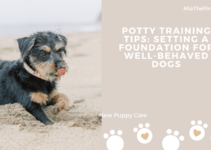The Importance of Choosing a Reputable Breeder
When it comes to bringing a new puppy into your life, one of the most crucial decisions you’ll make is choosing a reputable breeder. A reputable breeder not only ensures the health and well-being of their puppies but also plays a significant role in the overall development and temperament of your furry friend. But what exactly makes a breeder reputable?
A reputable breeder is someone who prioritizes the health and welfare of their dogs above everything else. They carefully select breeding pairs based on genetic health, temperament, and breed standards. These breeders provide a nurturing and clean environment for their dogs, ensuring they receive proper veterinary care, nutrition, and socialization.
By choosing a reputable breeder, you can have peace of mind knowing that your new puppy is more likely to be free from hereditary health issues and behavioral problems. Additionally, reputable breeders often offer ongoing support and guidance, helping you navigate the exciting yet challenging journey of raising a puppy.
Preparing Your Home for a New Puppy: Essential Supplies and Set-up
Bringing a new puppy home is an exciting time, but it’s essential to prepare your home to ensure a smooth transition for both you and your furry friend. Before your puppy arrives, gather the essential supplies they’ll need, such as a comfortable bed, food and water bowls, chew toys, a leash, and a collar.
Creating a designated space for your puppy is also crucial. Set up a cozy and safe area where they can rest, eat, and play. This can be a crate or a puppy-proofed room. Puppy-proofing involves removing any potential hazards, such as electrical cords, toxic plants, and small objects that could be swallowed.
Remember, puppies are naturally curious and may explore their surroundings by chewing on things. Providing appropriate chew toys and redirecting their chewing behavior will help protect your belongings while keeping your puppy entertained and mentally stimulated.
Feeding and Nutrition: How to Provide a Balanced Diet for Your Puppy
Proper nutrition is vital for the healthy growth and development of your new puppy. A balanced diet ensures they receive all the necessary nutrients to support their growing bones, muscles, and organs. Consult your veterinarian to determine the best type of food and feeding schedule for your specific breed and age of the puppy.
Puppies have different nutritional needs than adult dogs, requiring a diet that is rich in high-quality protein, healthy fats, and essential vitamins and minerals. Commercial puppy food formulated for their specific life stage is an excellent choice, as it is designed to meet their nutritional requirements.
Remember to provide fresh water at all times and avoid feeding your puppy from the table. Human food can be harmful and may lead to nutritional imbalances or weight issues. Stick to the recommended portion sizes and monitor your puppy’s body condition to ensure they maintain a healthy weight.
Puppy Health and Vaccinations: A Comprehensive Guide
Ensuring your puppy’s health is of utmost importance. Regular veterinary check-ups and vaccinations play a crucial role in preventing diseases and maintaining their well-being. Schedule an appointment with a trusted veterinarian to create a comprehensive health plan for your new furry family member.
During your puppy’s first veterinary visit, they will receive a series of vaccinations to protect against common diseases such as distemper, parvovirus, and rabies. Your veterinarian will also discuss preventive measures for parasites like fleas, ticks, and worms.
Additionally, it’s important to establish a routine for grooming, dental care, and nail trimming. Regular brushing, ear cleaning, and dental hygiene can help prevent dental diseases and keep your puppy’s coat and skin healthy. Your veterinarian can guide you on the appropriate grooming practices for your specific breed.
Training and socialization are essential components of raising a well-behaved and balanced dog. Start training your puppy as early as possible to build a strong foundation of obedience and good manners. Basic commands such as sit, stay, and come are crucial for their safety and your peace of mind.
Socialization is equally important to ensure your puppy grows up to be confident and friendly around other dogs, animals, and people. Expose your puppy to different environments, sounds, and experiences in a positive and controlled manner. Puppy classes and playdates can provide valuable opportunities for socialization and learning.
Remember, training should always be based on positive reinforcement techniques, rewarding good behavior rather than punishing unwanted actions. Patience, consistency, and plenty of love and praise will go a long way in shaping your puppy into a well-rounded and obedient companion.
Grooming and Hygiene: Keeping Your Puppy Clean and Healthy
Maintaining proper grooming and hygiene practices is crucial for your puppy’s overall health and well-being. Regular grooming not only keeps your puppy looking and smelling fresh but also helps prevent skin infections, matting, and other potential health issues.
Depending on your puppy’s breed, they may require different grooming routines. Regular brushing helps remove loose hair, prevents tangles, and stimulates the skin. It’s also important to clean your puppy’s ears regularly to prevent ear infections and trim their nails to avoid discomfort or injury.
Bathing your puppy should be done as needed, using a mild dog shampoo specifically formulated for puppies. Avoid over-bathing, as it can strip their skin of natural oils, leading to dryness and irritation. Your veterinarian can provide guidance on the appropriate grooming schedule for your puppy’s specific needs.
By understanding the importance of choosing a reputable breeder, preparing your home, providing a balanced diet, ensuring proper healthcare, training and socialization, and maintaining good grooming practices, you’ll be well on your way to unlocking the secrets of breeder and providing the best care for your new puppy. Embrace the journey and cherish the unconditional love and joy your furry friend will bring into your life!
FAQs
What qualities make a breeder reputable?
A reputable breeder prioritizes the health and welfare of their dogs, carefully selects breeding pairs based on genetic health and temperament, and provides a nurturing and clean environment for their dogs.
What supplies and set-up are essential when bringing a new puppy home?
Essential supplies for a new puppy include a comfortable bed, food and water bowls, chew toys, a leash, and a collar. It’s also important to create a designated space for your puppy where they can rest, eat, and play.
How can I provide a balanced diet for my puppy?
Consult your veterinarian to determine the best type of food and feeding schedule for your specific breed and age of the puppy. Commercial puppy food formulated for their specific life stage is an excellent choice, as it is designed to meet their nutritional requirements.
What vaccinations and health care should I provide for my puppy?
Regular veterinary check-ups and vaccinations are crucial in preventing diseases and maintaining your puppy’s well-being. During their first veterinary visit, they will receive vaccinations for common diseases and preventive measures for parasites. Establishing a routine for grooming, dental care, and nail trimming is also important.
How can I train and socialize my puppy?
Start training your puppy as early as possible, focusing on basic commands and positive reinforcement techniques. Socialization is equally important, so expose your puppy to different environments, sounds, and experiences in a positive and controlled manner. Puppy classes and playdates can provide valuable opportunities for socialization and learning.
What grooming and hygiene practices should I follow for my puppy?
Maintaining proper grooming and hygiene practices is crucial for your puppy’s overall health. Regular brushing, ear cleaning, and nail trimming are important. Bathing should be done as needed using a mild dog shampoo specifically formulated for puppies, and over-bathing should be avoided to prevent dryness and irritation.






